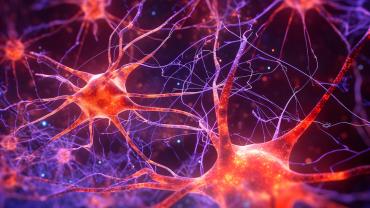
The aging brain can be sensitive to nutritional status and other subtle changes to lifestyle habits. Certain fruits, vegetables, seeds, teas, and cocoa contain bioactive chemicals called flavanols that may help support antioxidative status, a normal inflammatory response, and many other aspects of human health. Recent clinical evidence suggests that flavanols may also help support age-related changes, brain function, and memory.
Flavanols are classified as a type of polyphenol called flavonoids. Studies involving brain changes and flavonoid intake indicate that they may help support cognitive functioning and neuronal health. Laboratory and animal studies have observed increases in hippocampal brain-derived neurotrophic factor (BDNF) and vascular endothelium growth factor (VEGF) levels in the presence of flavonoids. Flavonoids were also shown in animal studies to help regulate neurogenesis, synaptogenesis, neuronal plasticity, and neuronal maturation. They also influenced signaling pathways related to BDNF and helped prevent stress-induced decreases in BDNF expression.
Flavonoids have also been shown to support the body’s response to oxidative stress. Oxidative stress may be linked to neuronal damage, cognitive dysfunction, inflammatory disorders, and other age-related changes. In laboratory studies, flavonoids have been shown to interfere with systems related to the production of free radicals.
A recently published randomized controlled trial by Brickman and colleagues explored the potential relationship between flavanol intake, memory, and age-related brain changes. This study involved data from over 3,500 older adults. The intervention consisted of 500 mg of cocoa-derived flavanols per day for three years. The study collected data regarding diet quality at baseline and assessed memory related to hippocampal activity. The hippocampus is an area in the brain that is particularly sensitive to age-related changes in cognition.
In a previous clinical study by the same authors, flavanol intake was observed to help promote hippocampal-dependent cognition after three months; the greatest improvements were observed in individuals in the lowest tertile of habitual diet quality. In this more recent longer-term study by Brickman and colleagues, parameters related to memory restoration were reported to improve in the treatment group when compared with placebo; again, this improvement was greater in the lowest tertile of reported diet quality. Of note, this study helped confirm cognition-related observations related to the Cocoa Supplement and Multivitamin Outcomes Study (COSMOS). Study strengths include a relatively large sample size, long study duration, and clearly defined and executed primary and secondary outcomes.
Evidence suggests that certain bioactive chemicals such as flavanols and other flavonoids may help support antioxidative status and cognitive functioning. They may also help support age-related brain changes and may help maintain levels of brain-supportive agents such as BDNF and VEGF. Flavanols can be found in cocoa, apples, berries, grapes, teas, and other fruits and vegetables.
By Dr. C. Ambrose, ND, MAT